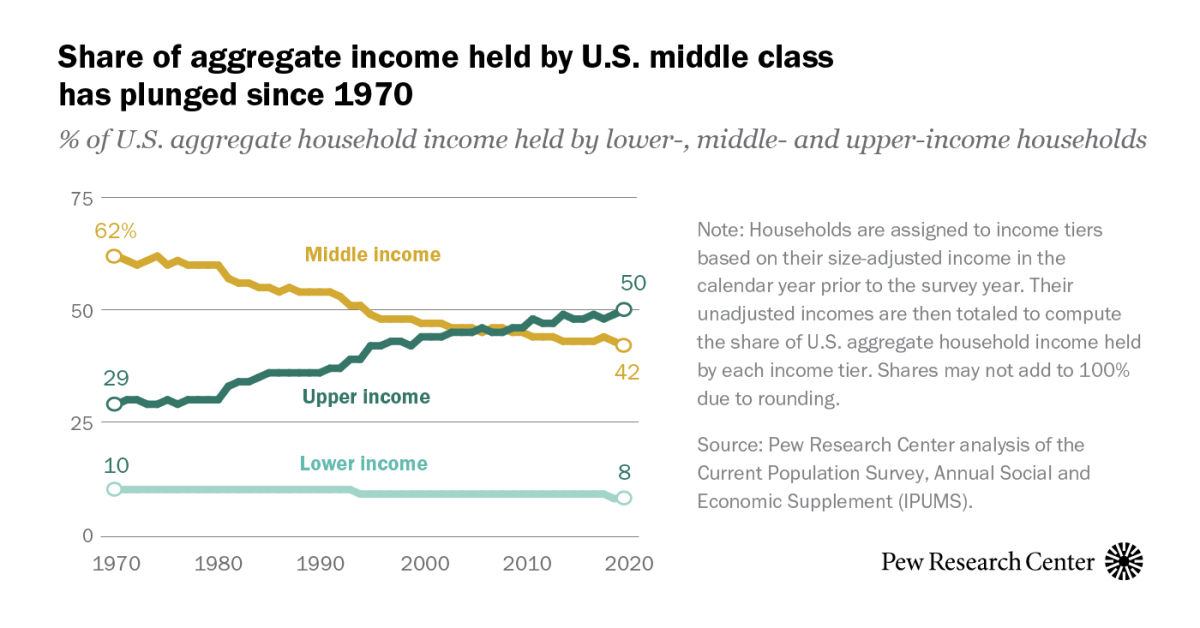You compare it to automation eliminating labor jobs in the 70s. I think that is a fair comparison, but if you look at the outcome there, it ushered in an era of prosperity for the countries where that manual labor was phased out. Unemployment is lower and the standard of living is higher today in those 1st world industrialized nations than it was before this happened.
First of all, I am not sure your premise that quality of living has substantially increased since the 70s is true
“The middle class, once the economic stratum of a clear majority of American adults, has steadily contracted in the past five decades. The share of adults who live in middle-class households fell from 61% in 1971 to 50% in 2021, according to a new Pew Research Center analysis of government data.
The shrinking of the middle class has been accompanied by an increase in the share of adults in the upper-income tier – from 14% in 1971 to 21% in 2021 – as well as an increase in the share who are in the lower-income tier, from 25% to 29%.“
The share of adults who live in middle-class households fell from 61% in 1971 to 50% in 2021, according to a new analysis.

www.pewresearch.org
“To make matters worse, Americans’ wages have stagnated since the 1970s, with worker productivity
growing three times more than pay. The economy of the 1970s also underwent a bout of high inflation, with prices
rising more than 12% in 1974, due in part to the Arab oil embargo.”
“The median price of a home in the second quarter of 1972
was just $26,800, according to the U.S. Census Bureau, amounting to roughly $189,500 in current dollars. Since then, home prices have climbed 132%. ”
More young adults are living with their parents because of housing costs. But shelter isn’t the only thing that’s gone way up.

www.marketplace.org
Even if I accepted the premise, this only shows correlation, not causation. Why is it not because of e.g. moving a lot of production overseas, where production is cheaper.





